This article has multiple issues. Please help improve it or discuss these issues on the talk page . (Learn how and when to remove these messages)
|

Janko Kos (born 9 March 1931) is a Slovenian literary historian, theoretician, and critic.
This article has multiple issues. Please help improve it or discuss these issues on the talk page . (Learn how and when to remove these messages)
|

Janko Kos (born 9 March 1931) is a Slovenian literary historian, theoretician, and critic.
He was born in Ljubljana in what was then the Kingdom of Yugoslavia as the son of the painter and sculptor Tine Kos. His father was a liberal and freethinker (during World War II a supporter of the pro-Communist Liberation Front of the Slovenian People), while his mother was a devout Roman Catholic. [1]
He studied at the University of Ljubljana, where he graduated from comparative literature in 1956. Among his schoolmates was the famous literary scholar Dušan Pirjevec Ahac. During this period, Kos became involved in the intellectual endeavours of the "Critical generation," a group of young Slovene artists and intellectuals who challenged the cultural policies of the Titoist regime. Among Kos' closest collaborators during this time were the literary theoretician Taras Kermauner, dissident sociologist Jože Pučnik, writer Dominik Smole, essayist Primož Kozak, and the poet Dane Zajc, Kos' cousin. He wrote in the alternative journal Perspektive until they were closed by the Communist regime in 1964.
In 1969 Kos obtained his PhD at the University of Ljubljana under the supervision of Anton Ocvirk.
From 1970, he has taught literary theory at the University. Kos dedicated most of his scholarly career researching the literary, intellectual and personal profile of the Slovene Romantic poet France Prešeren, publishing several innovative studies in this regard. He also researched the literary work of Ivan Cankar, Matija Čop, and Valentin Vodnik. He has also written several text books of Slovene and world literature for high schools.
Since 1983, Kos has been a member of the Slovenian Academy of Sciences and Arts.
Since the late 1990s, Kos has been a public supporter of the Slovenian Democratic Party. Since 2004 he has been a member of the liberal conservative civic platform Rally for the Republic (Slovene : Zbor za republiko).
He is the father of the literary critic Matevž Kos and the father-in-law of the writer and editor Igor Bratož.

Ivan Cankar was a Slovene writer, playwright, essayist, poet, and political activist. Together with Oton Župančič, Dragotin Kette, and Josip Murn, he is considered as the beginner of modernism in Slovene literature. He is regarded as the greatest writer in Slovene, and has sometimes been compared to Franz Kafka and James Joyce.
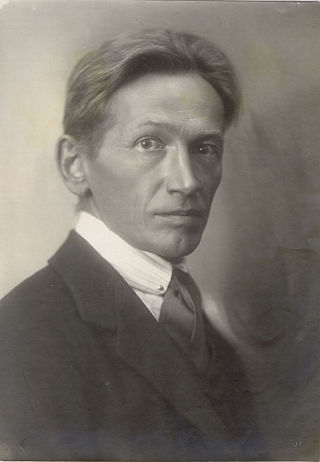
Oton Župančič was a Slovene poet, translator, and playwright. He is regarded, alongside Ivan Cankar, Dragotin Kette and Josip Murn, as the beginner of modernism in Slovene literature. In the period following World War I, Župančič was frequently regarded as the greatest Slovenian poet after Prešeren, but in the last forty years his influence has been declining and his poetry has lost much of its initial appeal.
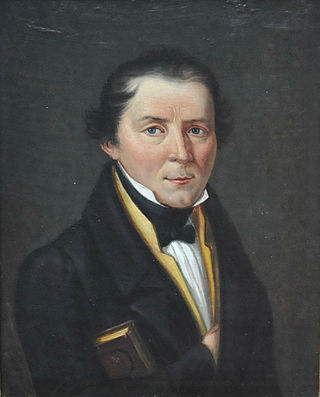
Matija Čop, also known in German as Matthias Tschop, was a Slovene linguist, polyglot, literary historian and critic.

Dane Zajc was a Slovenian poet and playwright. He served as president of the Slovene Writers' Association (1991–1995), and was awarded the prestigious Prešeren Award for lifetime achievement (1981). Together with Edvard Kocbek and Gregor Strniša, he is considered the most important Slovenian poet of the second half of the 20th century.

Fran Albreht was a Slovenian poet, editor, politician and partisan. He also published under the pseudonym Rusmir.
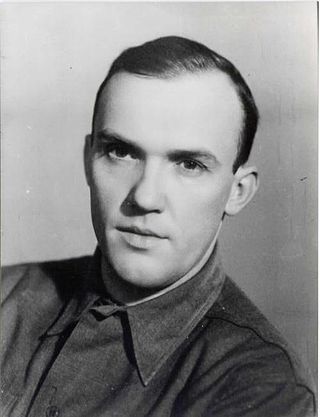
Matej Bor was the pen name of Vladimir Pavšič, who was a Slovene poet, translator, playwright, journalist and Partisan.
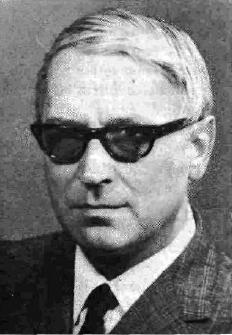
Jože Javoršek was the pen name of Jože Brejc, a Slovenian playwright, writer, poet, translator and essayist. He is regarded as one of the greatest masters of style and language among Slovene authors. A complex thinker and controversial personality, Javoršek is frequently considered, together with the writer Vitomil Zupan, as the paradigmatic example of the World War II and postwar generation of Slovene intellectuals.
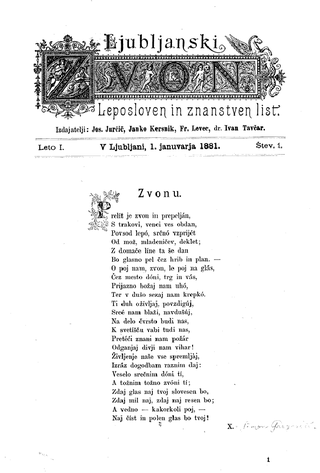
Ljubljanski zvon was a journal published in Ljubljana in Slovene between 1881 and 1941. It was considered one of the most prestigious literary and cultural magazines in Slovenia.

Taras Kermauner was a Slovenian literary historian, critic, philosopher, essayist, playwright and translator.

Ivo Brnčić or Brnčič was a Yugoslav author, essayist and literary critic of Croat origin, particularly notable for his assessment of interwar Slovene literature. Most of his works were published posthumously.
Dušan Pirjevec, known by his nom de guerre Ahac, was a Slovenian Partisan, literary historian and philosopher. He was one of the most influential public intellectuals in post–World War II Slovenia.

Avgust Pirjevec was a Slovene literary scholar, lexicographer, and librarian.
Sodobnost is a Slovenian literary and cultural magazine, established in 1933. It is considered the oldest of currently existing literary magazines in Slovenia. Although Sodobnost has traditionally been a magazine focused on cultural and literary issues, it nowadays covers a wide range of current affairs. It is part of the Eurozine editorial project.

Bogo Grafenauer was a Slovenian historian, who mostly wrote about medieval history in the Slovene Lands. Together with Milko Kos, Fran Zwitter, and Vasilij Melik, he was one of the founders of the so-called Ljubljana school of historiography.
Primož Kozak was a Slovenian playwright and essayist. Together with Dominik Smole, Dane Zajc and Taras Kermauner, he was the most visible representative of the so-called Critical generation, a group of Slovenian authors and intellectuals that reflected on the paradoxes of the communist regime, and the relation between power and individual existence in general.
Peter Božič was a Slovenian writer, playwright, journalist and politician. He is renowned for his modernist novels in which he described the horrors of World War II, and for the literary depictions of lower classes.

Venčeslav "Veno" Taufer was a Slovenian poet, essayist, translator and playwright. Under the Communist regime, he was a driving force behind alternative cultural and intellectual projects in Socialist Slovenia, which challenged the cultural policies of the Titoist system. During the Slovenian Spring (1988–1990), he actively participated in the efforts for the democratization and independence of Slovenia.
Spomenka Hribar is a Slovenian author, philosopher, sociologist, politician, columnist, and public intellectual. She was one of the most influential Slovenian intellectuals in the 1980s, and was frequently called "the First Lady of Slovenian Democratic Opposition", and "the Voice of Slovenian Spring" She is married to the Slovenian Heideggerian philosopher Tine Hribar.
Nova revija is a Slovene language literary magazine published in Slovenia.